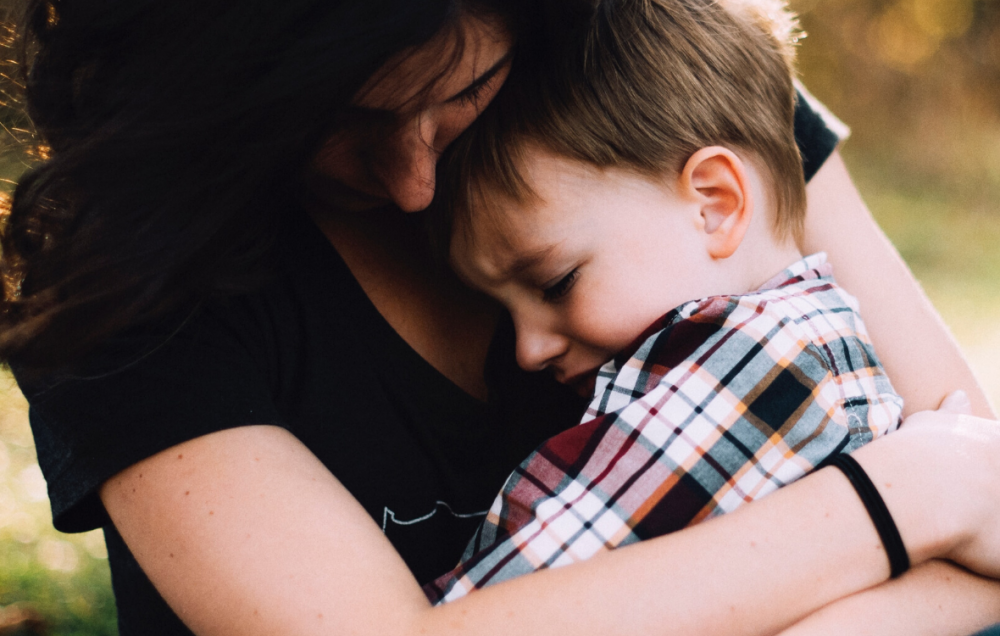It is widely accepted that adults experience a wide range of emotions when their relationship ends. They may become stressed, anxious, remorseful, angry, frustrated, upset, depressed… Often, people tend to forget that children also can become emotional as their family changes. Rachael Scharrer, Relationship and Divorce Counsellor and Separation Strategist, explains tips for helping your child through their emotions.
You may be going through a separation. There is a lot of uncertainty for your child around new living arrangements, new routines and limited contact with one parent. This may make your child particularly emotional at times.
Your child may be at school (for the first time or have new expectations for their year level) and trying to meet their own expectations academically. Your child may be more tired than usual or stressed.
Whatever your situation may be – Whether you are separating, there is a change to the parenting situation or arrangement or if your child is just more emotional at school – you can implement a number of strategies to help your child with their emotions.
- FOCUS ON BREATH. One technique that can help calm and focus is by concentrating on breath. The ‘Square Breath’ technique has equal counts breathing in, holding the breath, breathing out and holding the breath and repeating it 3 or 4 times. You may need to make the count smaller (say, 2 or 3) for children and higher for adults (say, 4 or 5).
- LET THEM SIT WITH THEIR EMOTIONS. Don’t be dismissive. Be present and understanding. Allow your child to be with their emotions and process them. Continually dismissing them will force your child to ‘stuff’ their emotions and make them feel like it isn’t acceptable to be emotional.
- FOCUS ON THE FIVE SENSES. A simple technique to help your child ground themselves to teach them how to raise their awareness of their surroundings. You can ask your child to name what they can sense, smell, hear, taste, touch? Ask them “How do you feel in your body right now?”
- REPEATED SITUATIONAL TRIGGERS & REACTIONS. When your child displays reactions to a repetitive situation, help your child to notice the triggers and implement a strategy that they can utilise to either minimise their reaction or avoid the situation when their trigger feelings are small.
- MANAGING FEAR. Sometimes fear is just that – fear. It is a feeling and it is a very real feeling. However, the fear may be fictitious. Helping your child to understand that yes, you can be scared and nothing has happened. If your child is older, you can explain the phrase “you have nothing to fear but fear itself;” that is, that until something has actually happened, there isn’t anything to worry about
- BUILD CONFIDENCE AND STRENTHS. When your child says “I’m no good,” it is an opportunity for you to uplift and raise your child’s confidence by working with their strengths. Yes, not everyone can be the best at everything – sometimes your child needs to appreciate that while one child is a fast runner, they may be great at drawing and our differences make us unique
- INSTEAD DISCIPLINE, USE PRAISE. Avoid constantly making your child feel less or small. Try to find moments when your child is doing something really well and focus on that – give them some praise. It’s likely that your child will try to do more of the ‘good’ and less of the ‘not so good’ behaviour
- KEEP AN EVEN KEEL. As a parent of a child who is experiencing an emotional time, it is important for you to try to be patient and manage your own emotions. Children are sponges and they often take your emotional lead. Yes, you can cry in front of the children, however excessive crying isn’t helpful for your child. Equally, if your child is having an outburst or tantrum, trying to stay calm will aid in de-escalating the child’s feelings and model appropriate behaviour
It is possible to help your child through a traumatic, stressful or sad period in their life. Channeling, managing and coping with emotions in a positive and constructive way is a learned behaviour and you can guide your child with the suggested strategies above. The choices that you make as their parent can make a significant difference to how your child perceives themselves and how they learn to manage their emotions.
If you find that your child’s emotions are too much for them or for you, seek additional assistance, guidance and strategy from your GP, counsellor/therapist or paediatric psychologist.
You may also like to read:
Helping your child through their divorce experience
Five actions that could be considered mistreatment of your child








